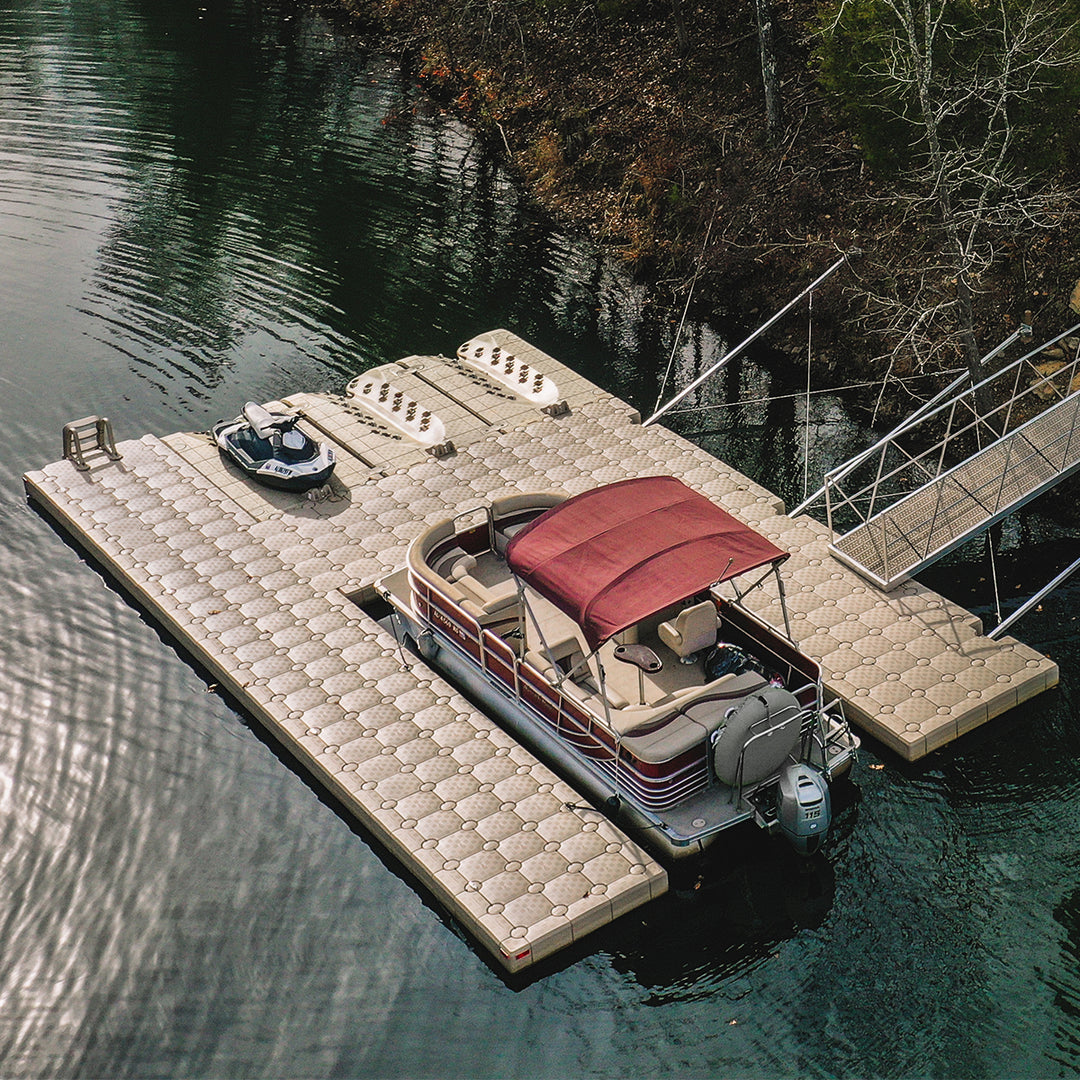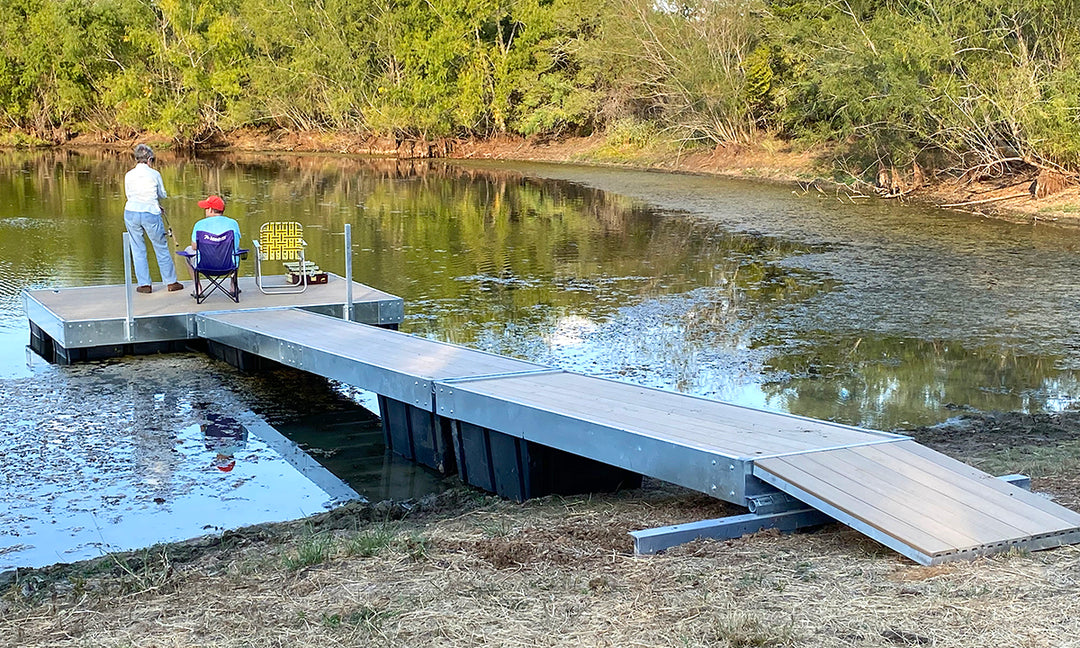Floating Docks: The Suitable Selection for Versatile Water Gain Access To
Floating docks existing a compelling service for a selection of water accessibility requires, using adaptability that goes beyond standard mooring alternatives. The modular nature of floating docks promotes personalization, catering to specific needs.
Benefits of Floating Docks
Floating docks deal countless benefits that enhance water accessibility for various applications. Their ability to fall and increase with altering water degrees makes them particularly advantageous in atmospheres with varying trends or seasonal variations. This versatility ensures that vessels can quickly moor without concern for the water's depth, providing a dependable system for recreational, business, and industrial uses.
In addition, floating docks are frequently created from durable products that stand up to deterioration, making them suitable for long-lasting usage in aquatic settings. Their installation is normally much less intrusive than standard fixed docks, minimizing the ecological influence and promoting quicker implementation (floating dock services). This adaptability enables much easier relocation or reconfiguration according to customer demands or ecological adjustments
Safety is another key benefit; floating docks can give steady gain access to for individuals boarding or disembarking from watercrafts and reduce the risk of crashes related to unpredictable surfaces. They can be made to suit a range of accessories, such as cleats and fenders, boosting capability. Generally, floating docks stand for an efficient option for improving water access throughout diverse sectors while advertising security and environmental sustainability.

Kinds Of Floating Docks
Numerous sorts of floating docks deal with different demands and atmospheres, each made with specific attributes to optimize performance. One of the most common types include modular docks, which contain interlacing sections that enable very easy modification and expansion. These docks are ideal for leisure usage, as they can be tailored to fit different watercraft dimensions and water conditions.
One more preferred alternative is the fixed floating dock, which continues to be anchored in location however drifts with transforming water degrees. dock company. This type is particularly matched for areas with very little tidal variations, providing steady accessibility for fishing or swimming. Furthermore, there are drive-on docks, which include a sloped style that enables watercrafts to easily drive on and off, making them appropriate for personal watercraft and smaller vessels
For industrial applications, sturdy floating docks are offered, built from strengthened products to endure considerable tons and extreme aquatic atmospheres. Finally, eco-friendly floating docks utilize sustainable products and designs to reduce ecological impact, often integrating attributes like greenery to support regional wildlife. Recognizing the different sorts of floating docks guarantees that users can pick the most appropriate remedy for their certain demands.
Installation Refine Summary
An effective setup of floating docks requires mindful planning and attention to detail to make sure optimal efficiency and security. The first step entails examining the site problems, including water depth, existing, and prospective barriers. This evaluation educates the choice of the ideal dock materials and layout tailored to the certain environment.
Next, getting required authorizations is vital, as several jurisdictions have guidelines relating to building on water bodies. As soon as consents are safeguarded, the installation can proceed. Begin by preparing the foundation, which may entail anchoring systems or pilings customized to the dock type and regional problems.
Following the structure arrangement, assemble the dock sections according to maker requirements. Ensure that all elements are safely attached and straightened to withstand environmental stress and anxieties. Setting the dock in the marked location, guaranteeing it is degree and steady.

Upkeep Tips and Finest Practices
After the setup process is complete, recurring upkeep plays a crucial role in ensuring the longevity and capability of floating docks. Normal assessments must be conducted to identify any kind of indications of damage, wear, or damage - floating dock company. Look for any kind of loose fittings, fractures, or separation in the dock areas, as these can compromise architectural integrity
Cleansing the dock is vital to remove debris, algae, and various other accumulation that can affect its look and safety. Use a gentle pressure clean periodically to keep cleanliness without creating damage to the surface area. In addition, applying a safety sealant every few years can aid enhance click here to find out more durability and resist environmental wear.
Take note of the mooring lines and anchors, ensuring they are totally free and safe from corrosion. Replace any type of abject components quickly to avoid dangers. Seasonal adjustments may likewise be essential; during extreme climate condition, reinforcing the dock or rearranging can protect against damages.
Applications for Floating Docks
Floating docks serve a wide variety of applications, providing to both entertainment and commercial requirements. In entertainment setups, they give seamless access to waterways for activities such as boating, fishing, and swimming. Their adjustable nature enables for installment in differing water degrees, making certain secure and stable access regardless of tidal fluctuations.
Commercially, floating docks are important for marinas and waterside services. They assist in the docking of vessels, making it possible for reliable filling and dumping of items. Their modular design enables very easy development or reconfiguration to accommodate changing business needs, making them perfect for boat services, scenic tour procedures, or angling charters.
Furthermore, floating docks are made use of in ecological applications such as water research study and habitat restoration. They can act as systems for scientific studies, keeping track of water quality, or click here now conducting wild animals surveys without disturbing delicate ecological communities.
In commercial contexts, floating docks are utilized in construction tasks, giving access to hard-to-reach areas for tools and workers. Their versatility, durability, and marginal influence on the environment make them an optimum option for a vast array of applications, improving both functionality and access in different water-based environments.
Verdict
Finally, floating docks represent an optimum option for diverse water accessibility requires, owing to their versatility, longevity, and modular style. These frameworks help with secure mooring for different applications while decreasing environmental influence during setup. The reduced maintenance needs even more boost their practicality. Therefore, floating docks offer as a valuable possession for entertainment, commercial, and ecological tasks, guaranteeing trusted access to rivers and advertising sustainable methods in marine settings.
Floating docks existing an engaging remedy for a selection of water accessibility requires, using adaptability that goes beyond standard mooring choices.Floating docks deal countless benefits that boost water gain access to for different applications. Generally, floating docks stand for a reliable option for boosting water gain access to throughout diverse sectors while advertising safety and security and ecological sustainability.
One more prominent option is the fixed floating dock, which stays anchored in area more information yet floats with changing water degrees.In final thought, floating docks represent an optimal remedy for varied water access requires, owing to their versatility, sturdiness, and modular design.